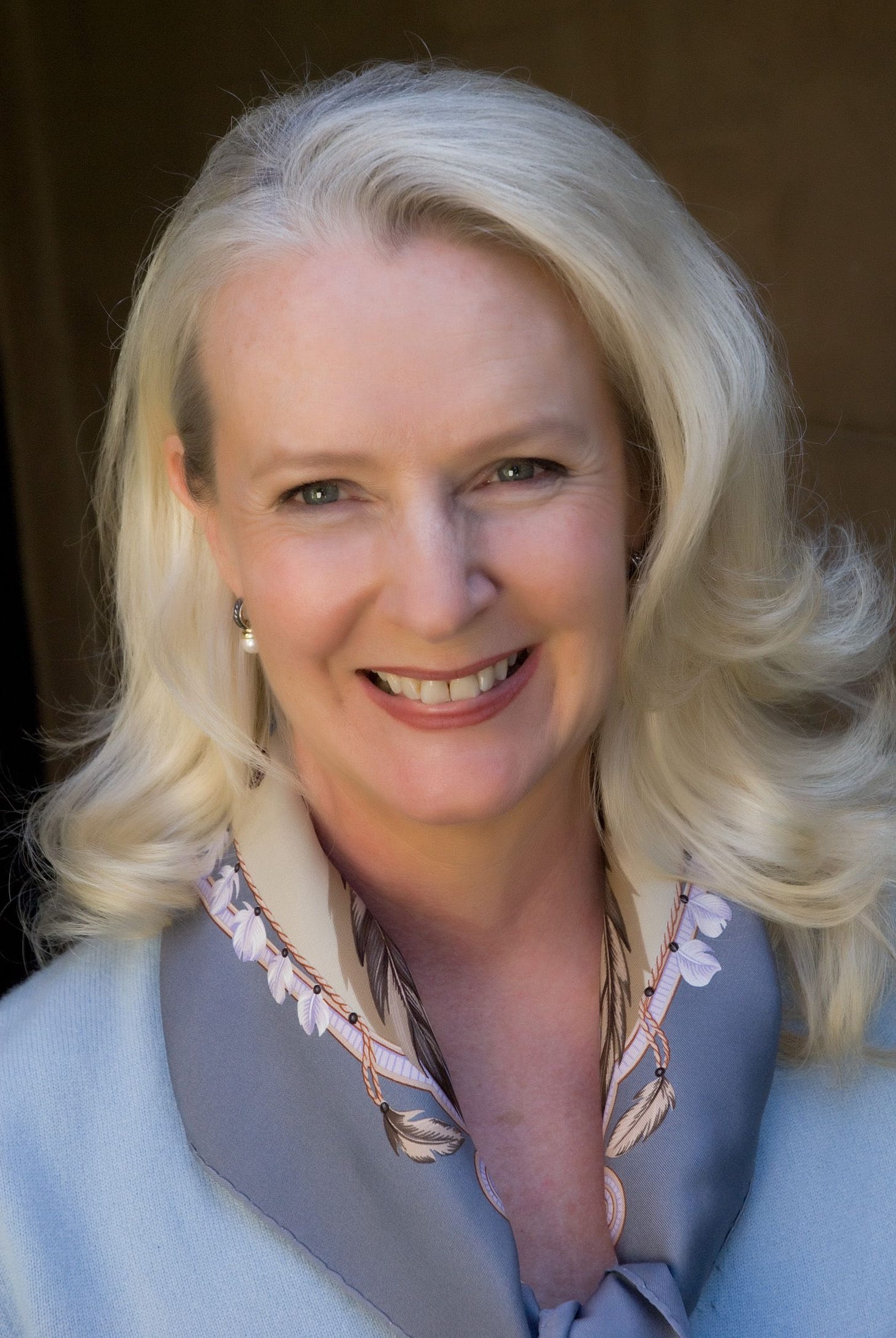NAPA VALLEY, Calif. — Let’s talk about how expensive medical costs can be.
Dr. Nancy Carteron, a rheumatologist by training, was talking about a time when a new biologic medication was released. Biologics are manufactured from living cells and cost more than other drugs.
“Usually the copay was $20 a month on average for RA (rheumatoid arthritis) patients,” she said. “Then it was $200 a month. Then in 2017, the copay was $2,000 a month. I had patients calling me up saying they left the medicine at the pharmacy because they couldn’t afford it for the whole year.”
The patient who left the medicine behind experienced a flareup, got sick again and looked to Carteron to make them better again.
“But I couldn’t,” she said. “Because I couldn’t solve that piece of the equation. It was an impossible solution. I said, ‘I don’t know what I’m going to do, but I can’t do this.’”
What are patients supposed to do? Are they going to make a decision that their current health is good enough?
“I had one guy take a job with Google just to get drug coverage because he couldn’t afford what the copay was going to be on his medicine,” she said. “I had patients who mortgaged their houses (to pay for the needed medication), which made me sick.”
Last Thursday, Sen. Bernie Sanders questioned the chief executives of three major pharmaceutical companies during a hearing of the Senate’s Health, Education, Labor & Pension Committee, of which he is chairman. He asked why drug prices are higher in the United States than in other wealthy countries. Defending their cost structures were the three executives, Joaquin Duato of Johnson & Johnson, Robert M. Davis of Merck and Christopher Boerner of Bristol Myers Squibb.
‘There’s always need’
In 2003 Carteron helped establish the HealthWell Foundation. Since its founding, the foundation has given away more than $4 billion to 900,000-plus underinsured patients to help with out-of-pocket expenses for critical, often life-saving drugs.
“Our goal at the beginning was to go out of business,” she said. “I actually don’t look at congratulations for 20 years. I look at it as it’s unfortunate that this type of organization is still left standing. I say that because our healthcare delivery system is very fragmented and is not improving.”
The foundation was meant to be a stop-gap measure, giving grants for those who had no insurance. The supporting insurers were supposed to step in and take over. Instead, the need has just expanded. Last year they gave away $700 million in grants.
“That’s a lot of need, and that’s the problem,” Carteron said.
Carteron was on the faculty at UC San Francisco and had a private practice in San Francisco for 28 years. She moved to the Napa Valley in the early 2000s and she and her husband, Ken Moll, currently live in Angwin, where they have been full-time residents since 2019. Both are members of Grace Episcopal Church in St. Helena where Carteron found her way into the children’s ministry.
Since January, the foundation has had to close its call center early every day, and the doctor said she has never seen this kind of call volume. People can sign up for help online, but not everyone is tech-savvy or has internet service.
“The bottom line now is no matter who you are and whatever insurance you have, it is not enough if you get certain diseases.”
Carteron’s San Francisco practice focused on autoimmune diseases, including Sjogren’s syndrome, which is when the body’s immune system attacks its own healthy cells. It often occurs with other immune ailments such as rheumatoid arthritis and lupus. The first biologic agent that became available for rheumatoid arthritis was a group of medicines called TNF inhibitors.
“When they first came to market and a patient had no insurance, the cost was about $1,200 a month,” Carteron said, “but most all insurers covered them because they were so dramatically more effective than other treatments.”
Today there are five drugs in the same category as well as a few other treatments for RA.
“If you go to the pharmacy and you have no insurance, it’s almost $6,000 a month,” she said. “Competition has done nothing to lower prices to the patient. My background simply is a doc who has gone through the last 30 years of what happens in healthcare. There’s an upside and a real wonder at some of the science that has transpired, and then there’s the underbelly of how you deliver that in a responsible way, both as a society and to the individual patient.”
Today Carteron is asking if there a willingness to have all the stakeholders be on the same page to decrease skyrocketing drug prices.
“You’re beginning to see a little bit with the current administration negotiating drug prices,” she said, “but for only 10 drugs out of thousands. But it’s a start.”
HealthWell Foundation
“When health insurance is not enough, we’re here to help with copays, premiums, deductibles and out-of-pocket expenses for supplies, supplements, surgeries and more,” Carteron said. “We offer financial assistance through a number of disease funds with new funds opening every year so patients can get the care they need.”
She was a co-founder along with Steve Weiner and Jerri Scarzella, and all three continue to serve on the board. Today the seven people on the board also include David Knowlton, chairman; Suzanne M. Miller, vice chair and secretary; Cathleen Bennett; and Dr. Don Liss. Scarzella is vice chair and treasurer. The president and CEO is Krista Zodet.
In her paper titled, “Hope in Health Care: A Look Ahead to 2024,” Zodet writes, “Just under half of U.S. adults say they have difficulty affording health care costs and have delayed or gone without medical care due to cost. This is a sobering statistic and one that is at the heart of HealthWell’s vision to ensure that no patient goes without health care because they cannot afford it.”
She adds the “Inflation Reduction Act of 2022 contains several provisions to lower out-of-pocket drug costs for people with Medicare, including a $35 cap on monthly cost sharing for insulin and free vaccines under Medicare Part D. New this year will be a cap on Part D out-of-pocket prescription costs that will save thousands of dollars for people who take high-cost drugs.”
In 2023 the foundation was honored to be a part of the White House Cancer Moonshot Initiative, which brings organizations together to “end cancer as we know it.” Today, all of the Foundation’s grants are focused on cancer patients.
The objectives include these five steps:
Make sure everyone has access to cancer screenings – so more Americans can catch cancer early, when outcomes are best.
Understand and prevent toxic and environmental exposures, such as forever chemicals and air pollution, which we know can cause cancer.
Prevent more cancers before they start – by reducing tobacco use, making sure every has access to healthy food, and getting more people vaccinated against HPV, which causes some cancers.
Drive new innovation and deliver the latest progress to patients and communities, so that all families benefit from breakthrough advances to prevent, detect, treat and survive cancer.
Support patients and caregivers, by helping them navigate the many decisions associated with a diagnosis, providing patients easy access to their health information, and driving action to lower drug costs.
20 years of accomplishments
In December the HealthWell Foundation was ranked 23rd on the Forbes list of the 100 largest U.S charities and was recognized as one of only nine charities nationwide that have 100 percent fundraising efficiency.
Its accomplishments since 2003 are impressive:
$4 plus billion in financial support
1.4 million grants for patients and families
100% of every dollar donated goes to patients
99% four-star charity rating by Charity Navigator
900,000 plus patients served as of Oct. 31, 2023
37,000-plus cases handled per month
4,190 children assisted through Patient Advocate Foundation
“As we were building the organization and becoming one of the best in the class, there has been some discussion on the board on whether we allow or solicit small contributions in the $25 to $50 range,” Carteron said. “What we found was people who had been helped by the organization just wanted to give back. It is a small amount compared to the grants we usually get, but actually it’s over a million dollars a year.”
Some of those donations have been from families of patients helped by the foundation.
“They wanted to give something back,” she said.
If today's story captured your interest, explore these related articles:
Dave Stoneberg is an editor and journalist who has worked for newspapers in both Lake and Napa counties.









I applaud Dr. Carteron's foundation and its mission. Such selfless initiative is always admirable. Thank you.
That said, I would respectfully request Mr. Stoneberg and any responsible journalist avoid supporting the dated narrative that a "successful accomplishment" of a nonprofit is that "100% of every dollar donated goes to patients." We mustn't hold any organization to such a metric. Not all 501c(3)s have the luxury of a volunteer CEO and, as is often the case, a Board that underwrites 100% of operating costs. Would we deny the leaders who support the many wonderful agencies in our County a salary, their own healthcare benefits, a laptop, an office in order to make that claim? Should an employee of a nonprofit be unable to afford their own medications because nonprofit salaries lag behind the private sector? The people on the front lines deserve our respect, and this small sentence continues to undermine the strategic (and fiscal) stewardship and fortitude it takes to run a nonprofit in 2024.
This is a wonderful organization trying to fix our "fragmented and not improving" health care system! And their work is a wake-up call. Are NVF readers aware that in California, the state Legislature, just last year, passed SB770, a law requiring the State to plan proactively for a new, universal health care system here, ideally a single-payer program? Single-payer would guarantee basic health care coverage for all California residents. No co-pays, no premiums. Importantly, the State would have the authority to negotiate drug prices. This year, AB2200 [CalCare] has just been introduced, and all concerned Californians can support its passage now. CalCare sets out the blueprint for the new program, which, if enacted, will make the system generally envisioned in SB770 a reality. For more information, you can visit healthcareforall.org and/or pnhp.org, sites of two organizations educating and advocating for a more just and efficient health care system.